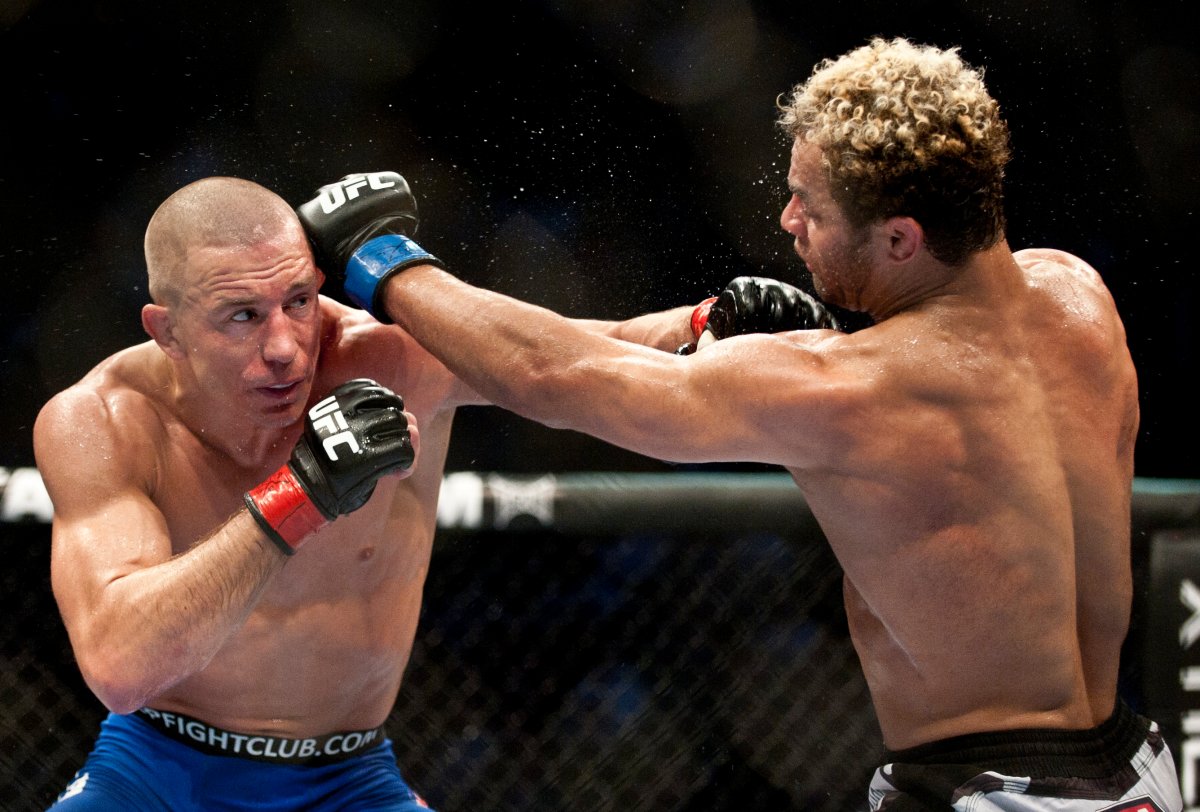As the president of UFC (Ultimate Fighting Championship) Canada and the former commissioner of the CFL, Tom Wright is certainly no stranger to hard knocks.

So he’ll likely feel right at home in the House of Commons.
Wright is in Ottawa Wednesday to testify about Bill S-209, a private members bill aimed at providing federal regulation and oversight of mixed martial arts (MMA) bouts, as well as other combat sports contests.
The UFC and the sport of MMA have exploded in popularity over the last several years, especially in Canada.
Canadian UFC champion Georges “Rush” St. Pierre is the company’s top draw, and a St. Pierre-headlined card at Toronto’s Rogers Centre set the all-time UFC attendance record. UFC President Dana White has repeatedly called Canada the “Mecca” of MMA.
Yet as it currently stands, section 83.2 of the Criminal Code of Canada defines prize fighting as “an encounter or fight with fists or hands between two persons.” That definition essentially confines the definition of “prize fighting” to mean boxing.
“The challenge that we have is the criminal code was written back in 1935, and it hasn’t been updated since,” Wright said.
That means technically speaking, every professional MMA bout in Canada is, according to a strict interpretation of federal law, illegal. This, despite the fact that the UFC has held several events in Canada.
“Basically, the term ‘boxing’ is not clearly defined in the law,” Ken Hayashi, athletics commissioner of Ontario, told Global News.

Get daily National news
“You have Chinese boxing, Thai boxing, and so on. They never described what a boxing contest consists of, so one could interpret that many ways.”
“In essence, the challenge was that those provincial and municipal governments had to turn a blind eye to the potential illegality of it,” Wright said. His hope with bill S-209 is to remove any ambiguity or “grey areas” from the federal prizefighting regulations.
Wright will testify Wednesday before the house Standing Committee on Justice and Human Rights, where bill S-209 currently sits after it passed its second reading (by a vote 283 to 4) before being moved to committee.
For Wright and for the UFC, this is just the latest stop in a long campaign to change both laws and minds when it comes to MMA.
“We’ve been at this for the better part of three years,” said Wright, who was hired to be director of operations for UFC Canada in May of 2010.
A big part of his job has been leading the lobbying efforts to establish a regulatory framework for MMA in Canada, and across the provinces.
“To use a football analogy, we’re in the red zone, close to the goal line,” the ex-CFL commissioner joked. “One more big push, and we should be there.”
One of those changed minds is bill S-209’s sponsor, conservative senator Bob Runciman. Admittedly not a fan of MMA, Runciman was swayed instead by the need for increased safety.
The safety argument is one that rings true for those within the martial arts community.
Joel Gerson is the owner of Revolution MMA, one of the most popular MMA gyms in Toronto. A former MMA and submission grappling competitor himself, Gerson is well aware of the benefits regulation brings for any sport.
“The reality is, if society wants something to happen, and it’s illegal or it’s not regulated, the reality is that society will get access to it one way or another,” Gerson told Global News. “The problem with MMA is that if it’s still going on, and not being overseen by a regulatory body, bad things can happen.”
The UFC made its debut in 1993 and quickly gained a reputation for its extreme, “no holds barred” combat. This led to a backlash in many parts of the U.S. and Canada, with many state and regional governments moving to ban mixed martial arts fights. Senator John McCain once infamously referred to the sport as “human cockfighting.”
But much has changed for the UFC, and for the sport of MMA, since then. The company came under new management, who sought to embrace regulation rather than flee from it.
New rules were introduced to improve the sport’s safety, and government-approved judges, officials, and ringside doctors were added.
Today, the sport enjoys drug testing, supervised weigh-ins, and other regulatory oversight similar to boxing.
“Much worse things will happen if it’s not organized and regulated,” Gerson said. “That’s the number one issue at the end of the day. While it may be well-intentioned, banning the sport actually does a lot more harm than good for the competitors.”
And while some criticize the sport for its ultra-violent image, there’s evidence that’s changing as well.
A study by Johns Hopkins University found the injury rate of MMA competitors was comparable to other major sports, and the knockout rate was actually lower that that found in boxing – a result of the improving regulation and supervision.







Comments